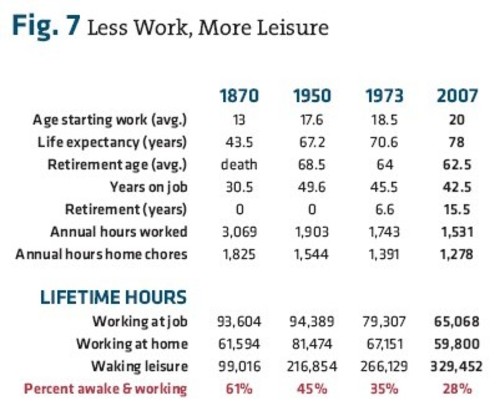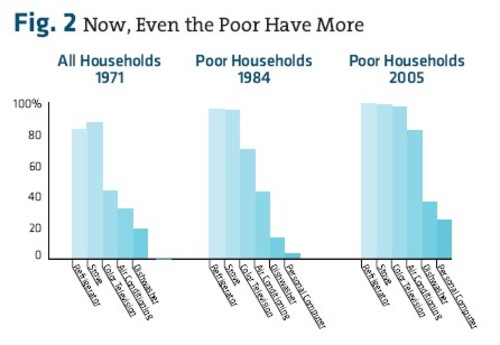I generally like the work that Factcheck.org does, and am perfectly willing to believe that McCain's claim that Obama has voted "for higher taxes" 94 times is exaggerated. However, some of their rationale leaves me flat:
Twenty-three [votes] were for measures that would have produced no tax increase at all; they were against proposed tax cuts.
Uh, OK. It strikes me that voting against 23 tax cuts is voting for higher taxes 23 times. I know that politicians work very hard to establish a sort of taxation Stare Decisis, wherein once a tax is in place it can never be questioned, but many of us think that tax cuts are fair game. But then Newsweek, in reporting this story, goes on to repeat this claim over and over, as if that makes it correct:
By our count, about a quarter of these votes for "higher taxes" "“ 23 to
be exact "“ are votes Obama cast against changing tax rates from what
they were at the time. Taxes would not have gone up. They would have
been "higher" only compared to the cuts being proposed.
Sorry, but this does not sound like independent fact-checking. This sounds like political spin and hackery by folks in Obama's camp. Voting against a tax cut is a vote for higher taxes.
Eleven votes the GOP
is counting would have increased taxes on those making more than $1
million a year "“ in order to fund programs such as Head Start and
school nutrition programs, or veterans' health care.
The implication here, I guess, is that the rich people don't count as people, and that raising taxes only on the rich does not count as a tax increase? We see this same bias that rich people don't count in their summary:
It's true that most of the votes the GOP counts would either have
increased taxes for some, or set budget targets calling for such
increases. But by repeating their inflated 94-vote figure, McCain and
the GOP falsely imply that Obama has pushed indiscriminately to raise
taxes for nearly everybody. A closer look reveals that he's voted
consistently to restore higher tax rates on upper-income taxpayers but
not on middle- or low-income workers.
The other interesting pice of the previous quote is that tax increases don't count if they fund programs such as Head Start that the author of the study, presumably, supports. The article goes on to say:
And in many cases, the legislation in question called for increasing
taxes in order to fund popular programs, a fact not mentioned by the
Republican opposition researchers. One such amendment
by Sen. Christopher Dodd to a 2006 bill, for example, proposed the
creation of a "veterans hospital improvement fund," financed by
increasing the capital gains and dividend tax rates on those earning $1
million a year or more.
You get it? Its not a tax if it is on the rich or funds a liberal program. By the way, I find this increasing reliance on taxes on people making $1 million or more an enormous threat to the very basis of our demacracy. It is always a danger in democracy to have 51% of the people vote themselves benefits at the expense of the other 49%. But this becomes increasingly seductive as the numbers skew, until every politician is crafting programs that take from the top 1% and give to politically influential portions of the other 99%. Here is a great example of that in California, with a program the majority of voters were not willing to pay for, but accepted when it was funded by a millionaire's surcharge:
Already, we see many states funding new programs with surcharges on the rich. Here is but one example:
California voters agreed to tax the rich to support public mental health
services.
More than half of them (53.3 percent) voted last month in favor of
Proposition 63, which will impose a tax surcharge of 1 percent on the taxable
personal income above $1 million to pay for services offered through the
state's existing mental health system. The initiative will generate an
estimated $700 million a year....
Richard A. Shadoan, M.D., a past president of the CPA, wrote in Viewpoints
in the September 3 issue of Psychiatric News, "The scope of the
program and its tax-the-rich source will provoke a debate. But it's an
argument worth having to make California face the neglect of not providing
treatment to more than 1 million people with mental illness."
So
what happened? I don't know how many people make a million dollars in
California, but it is certainly less than 5% of the population. So the
headline should read "53.3% of people voted to have less than 5% of the
people pay for an expensive new program." If the 53.3% thought it was
so valuable, why didn't they pay for it? Well, it is clear from the
article that the populace in general has been asked to do so in the
past and refused. So only when offered the chance to approve the
program if a small minority paid for it did they finally agree. This is the real reason for progressive taxation. (by the way, these 53.3% will now feel really good about themselves,
despite the fact they will contribute nothing, and will likely piss on
millionaires next chance they get, despite the fact that they are the
ones who will pay for the program).
That example reminded me in turn of this story from history, one of what I call "great moments in progressive taxation," and the ultimate logical end of this desire to have fewer and fewer rich people fund services for everyone:
My story today comes from the Roman Empire just after the death of
Julius Caesar. At the time, three groups vied for power: Octavian
(Augustus) Caesar, Mark Antony, and republican senators under Brutus
and Cassius. Long story short, Octavian and Antony join forces, and
try to raise an army to fight the republicans, who have fled Italy.
They needed money, but worried that a general tax would turn shaky
public opinion in Rome against them. So they settled on the ultimate
progressive tax: They named about 2500 rich men and ordered them
killed, with their estates confiscated by the state.
This approach of "proscriptions" had been used before (e.g. Sulla)
but never quite as obviously just for the money. In the case of
Octavian and Antony, though nominally sold to the public as a way to
eliminate enemies of Rome, the purpose was very clearly to raise
money. All of their really dangerous foes had left Rome with the
Republicans. The proscriptions targeted men of wealth, some of whom
had been irritants to Octavian or Antony in the past (e.g. Cicero) but
many of whom had nothing to do with anything. Proscribed men were
quoted as saying "I have been killed by my estates."
I wonder how many of today's progressives would be secretly pleased by this approach?
Postscript: I can't tell if this Newsweek article represents some sort of strategic alliance or deal with Newsweek, or just a one-off. If it is some kind of alliance, I think we can write off any notion that Factcheck.org is still non-partisan. I predict if this is the case we will see more pro-Obama spin out of Factcheck, or as a minimum, a cherry-picking by Newsweek of which checked facts it wants to publish and which it does not.



